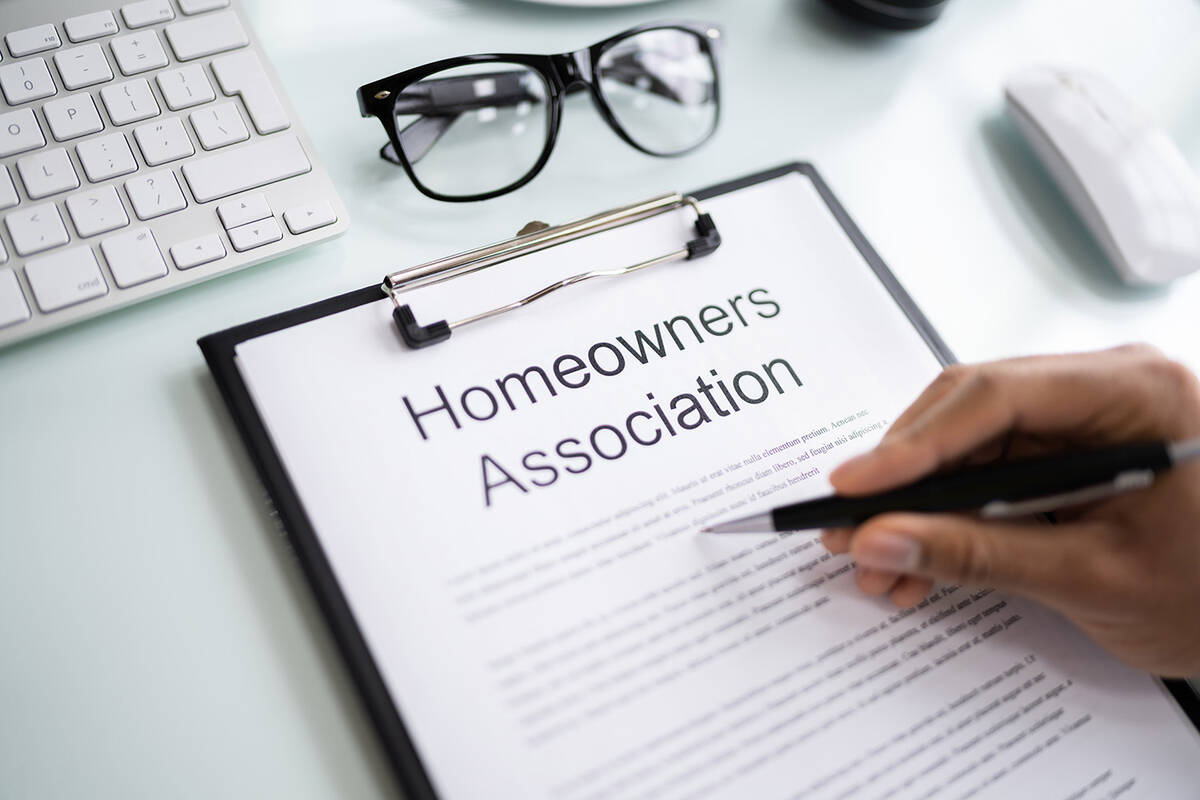Homeowners question HOA board, community manager
Note: Beginning in 2027, a Nevada legislative law passed in 2021 (Assembly Bill 356) applies to Southern Nevada’s homeowner associations and multifamily residential common areas, which will prohibit them from using water from the Colorado River to irrigate nonfunctional grass. By reducing our water consumption, we can protect our communities’ water supply. Nonfunctional grass must be removed before Jan. 1, 2027, to comply with the law
The Southern Nevada Water Authority’s Water Smart Landscapes Program provides incentives for the conversion of grass to drip-irrigated landscape and can help reduce costs for your communities. To be in compliance, you need to start planning now.
Available rebates for removing nonfunctional grass will be reduced in 2025. Contact SNWA staff at Enterprise.Conservation@snwa.com or 702-862-3740 to get started.
Q: I am one of about 20 dissident-homeowner/occupants at a large homeowners associate The other 250 occupants on property are tenants, airbnb-ers, weekly rentals, etc.
I have come across another issue that greatly annoys me (one of more than a few that you are aware of because fellow residents have brought it to your attention over the last four to six years). These have been brought on by a board of directors who are conflicted and manage to reelect themselves at end of terms.
This particular matter has been lurking on my to-do list, but your answer to a (recent) query where you mentioned some “fire units” at another HOA property stirred me to action.
In our total 270 units, we have one boarded-up unit that had a fire about six months ago. The unit has its main window and patio sliding door boarded up with plywood. No apparent action (e.g. contractors coming and going) has been apparent for quite awhile.
The matter is complicated, from what few facts that have circulated: Homeowner’s main residence and occupancy is back East. Homeowner’s family member was living in the unit prior to fire, and was a known hoarder.
My suspicion is that the homeowner did not have adequate condo insurance, does not have needed cash to make the unit commercially acceptable/liveable; and, effectively, shifted risk of loss directly to our HOA.
Nothing from the insurance agency has been issued to us that might inform us of corrective action, risk, etc. As you might expect, our HOA board has been silent on the matter and we (the few dissident) homeowners are not allowed to contact HOA law firm (the one that you share your weekly column with to spell out HOA law changes after Legislative sessions.)
It is a very rare occurrence that a newsletter is published and distributed to our homeowners group. And our board of directors seemingly insists on using Zoom for formal meetings, rarely coming on property to deal with disgruntled homeowners and occupants.
I have yet to receive our annual audit report, which might or might not disclose this item as a contingency (and amount?) in the written notes to financial statements.
All that being said, shouldn’t the board of directors or our management company be gathering and actively managing homeowner certificates of insurance, so as to avoid expiration or absence of coverage?
If true, I think we homeowners have some amateurish and unprofessional people managing our (community) in a pretty poor fashion. Dereliction of duty comes to mind.
I would like your opinion on this and what/whom might admonish our board of directors and/or management company for poor internal controls, Sarbanes-Oxley Act violations, etc and get correcting actions put formally in place
A: I would suggest that you contact an attorney to discuss the multiple issues in your email to me. There are issues concerning the confidentiality between the association and the homeowner, as the homeowner could be in violation of the association’s governing documents. Legal issue of whether the association could foreclose on the home. Does this home have a mortgage? What steps could the association take in forcing the lender to take action? Etc.
Barbara Holland, CPM, is an author, educator and expert witness on real estate issues pertaining to management and brokerage. Questions may be sent to holland744o@gmail.com.



















